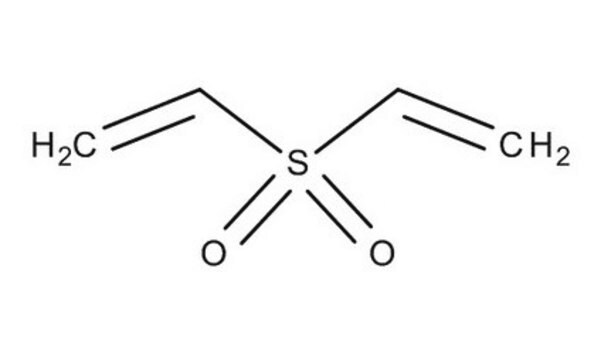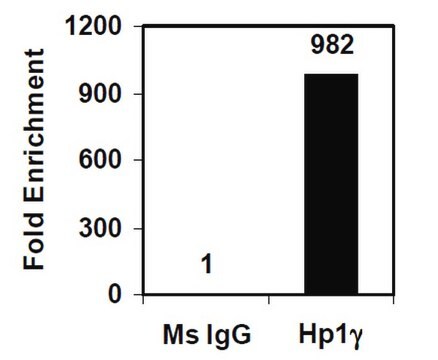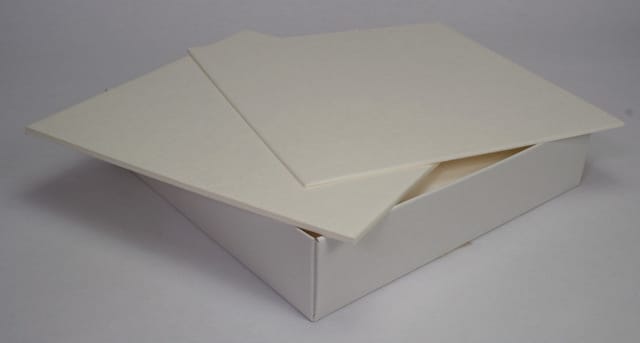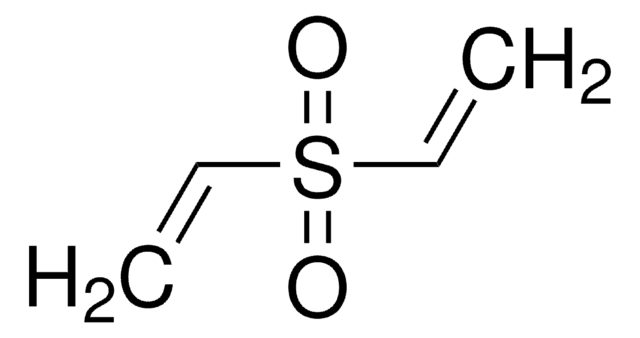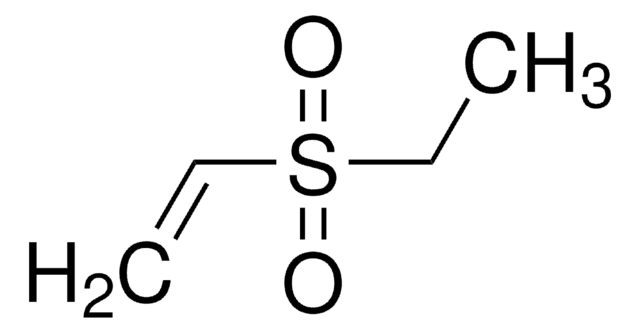180084
2,2′-Sulfonyldiethanol solution
60-65 wt. % in H2O
Synonyme(s) :
2-Hydroxyethyl sulfone
Se connecterpour consulter vos tarifs contractuels et ceux de votre entreprise/organisme
About This Item
Formule linéaire :
O2S(CH2CH2OH)2
Numéro CAS:
Poids moléculaire :
154.18
Numéro CE :
Numéro MDL:
Code UNSPSC :
12352100
ID de substance PubChem :
Nomenclature NACRES :
NA.22
Produits recommandés
Densité de vapeur
5.5 (vs air)
Niveau de qualité
Pression de vapeur
23.5 mmHg ( 20 °C)
Concentration
60-65 wt. % in H2O
Densité
1.236 g/mL at 25 °C
Groupe fonctionnel
hydroxyl
sulfone
Chaîne SMILES
OCCS(=O)(=O)CCO
InChI
1S/C4H10O4S/c5-1-3-9(7,8)4-2-6/h5-6H,1-4H2
Clé InChI
QQLILYBIARWEIF-UHFFFAOYSA-N
Application
2,2′-Sulfonyldiethanol was used as a cross-linking agent for poly(vinyl phosphonic acid) (PVPA).
Mention d'avertissement
Danger
Mentions de danger
Conseils de prudence
Classification des risques
Resp. Sens. 1
Code de la classe de stockage
10 - Combustible liquids
Classe de danger pour l'eau (WGK)
WGK 3
Point d'éclair (°F)
Not applicable
Point d'éclair (°C)
Not applicable
Faites votre choix parmi les versions les plus récentes :
Déjà en possession de ce produit ?
Retrouvez la documentation relative aux produits que vous avez récemment achetés dans la Bibliothèque de documents.
Les clients ont également consulté
Richard T Pon et al.
Nucleic acids research, 32(2), 623-631 (2004-01-31)
New linker phosphoramidite reagents containing a cleavable 3'-ester linkage are used for attaching the first nucleoside to the surface of a solid- phase support. Inexpensive, underivatized amino supports, such as long chain alkylamine controlled-pore glass, can serve as universal supports.
R M Black et al.
Xenobiotica; the fate of foreign compounds in biological systems, 22(4), 405-418 (1992-04-01)
1. The metabolism of sulphur mustard, 1,1'-thiobis(2-chloroethane), in vivo was investigated following i.p. administration to rat. 2. Approx. 60% of dose was excreted in the 24 h urine. Many metabolites were present; nine have been isolated by h.p.l.c. and characterized
R M Black et al.
Journal of chromatography, 558(2), 393-404 (1991-10-11)
Two methods have been developed for the analysis of thiodiglycol sulphoxide, a metabolite of sulphur mustard, in urine. The first method recovers thiodiglycol sulphoxide from urine by extraction from a solid absorbent tube and clean up on Florisil. In the
R M Black et al.
Journal of chromatography. B, Biomedical applications, 665(1), 97-105 (1995-03-10)
Gas chromatography-tandem mass spectrometry (GC-MS-MS) with selected-reaction monitoring was applied to the analysis of urinary metabolites of sulphur mustard, derived from the beta-lyase pathway and from hydrolysis. In the case of beta-lyase metabolites, a limit of detection of 0.1 ng/ml
R M Black et al.
Xenobiotica; the fate of foreign compounds in biological systems, 25(2), 167-173 (1995-02-01)
1. Samples of urine from two human subjects accidentally exposed to sulphur mustard were analysed for metabolites derived from hydrolysis (thiodiglycol, thiodiglycol sulphoxide), conjugation with glutathione (1,1'-sulphonylbis [2-S-(N-acetylcysteinyl)ethane]) and from further metabolism of glutathione conjugates by the beta-lyase pathway (1,1-sulphonylbis[2-(methylsulphinyl)ethane]
Notre équipe de scientifiques dispose d'une expérience dans tous les secteurs de la recherche, notamment en sciences de la vie, science des matériaux, synthèse chimique, chromatographie, analyse et dans de nombreux autres domaines..
Contacter notre Service technique



